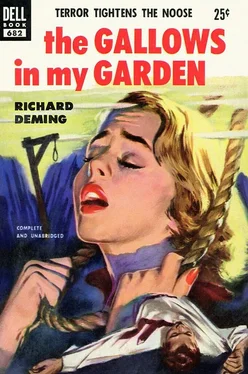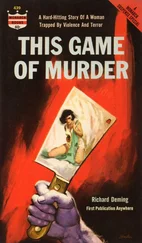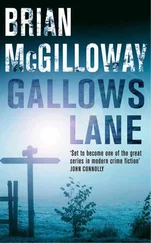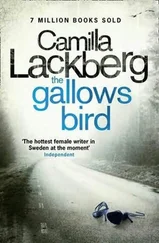Richard Deming - Gallows in My Garden
Здесь есть возможность читать онлайн «Richard Deming - Gallows in My Garden» весь текст электронной книги совершенно бесплатно (целиком полную версию без сокращений). В некоторых случаях можно слушать аудио, скачать через торрент в формате fb2 и присутствует краткое содержание. Город: New York, Год выпуска: 1953, Издательство: Dell, Жанр: Крутой детектив, на английском языке. Описание произведения, (предисловие) а так же отзывы посетителей доступны на портале библиотеки ЛибКат.
- Название:Gallows in My Garden
- Автор:
- Издательство:Dell
- Жанр:
- Год:1953
- Город:New York
- ISBN:нет данных
- Рейтинг книги:5 / 5. Голосов: 1
-
Избранное:Добавить в избранное
- Отзывы:
-
Ваша оценка:
- 100
- 1
- 2
- 3
- 4
- 5
Gallows in My Garden: краткое содержание, описание и аннотация
Предлагаем к чтению аннотацию, описание, краткое содержание или предисловие (зависит от того, что написал сам автор книги «Gallows in My Garden»). Если вы не нашли необходимую информацию о книге — напишите в комментариях, мы постараемся отыскать её.
Actually, Moon got off one of the fastest snap-shots in history, and went on to wrap up the case for the most beautiful client he ever had.
Gallows in My Garden — читать онлайн бесплатно полную книгу (весь текст) целиком
Ниже представлен текст книги, разбитый по страницам. Система сохранения места последней прочитанной страницы, позволяет с удобством читать онлайн бесплатно книгу «Gallows in My Garden», без необходимости каждый раз заново искать на чём Вы остановились. Поставьте закладку, и сможете в любой момент перейти на страницу, на которой закончили чтение.
Интервал:
Закладка:
Willow Dale is not a suburb, but a section of the city. Sometimes it is called “the millionaires’ subdivision,” for the five richest families in town live there. It consists of about fifteen acres perched atop a high bluff over the river. Private gates lead into each of the five estates, and the Lawson gate was the middle one.
The sun cast its slanting glow over perfectly kept lawns as we rolled up the graveled drive. We passed a badminton court, a tennis court, and a concrete swimming-pool. We could not see the house until we were nearly upon it, for between it and the swimming-pool was a screen of weeping willows. It appeared suddenly as we passed the weeping willows, a two-story brick mansion which must have contained twenty rooms.
Grace swung behind the house and pulled into the only vacancy in a four-car garage. Two other cars were parked in the court next to the garage, and beyond the court was a small stable.
“Uncle Doug and Abigail,” Grace remarked after glancing at the cars on the court.
As I followed Grace and Arnold to a side door, I glanced over the outside of the house. It was of modern, but not modernistic construction. It sat about thirty yards from the river bluff, which was edged with an iron handrail to prevent strollers from falling a hundred feet to the rocky beach below. An opening in the rail directly behind the house indicated steps descending to the beach. Beyond that I had time before we rounded the corner of the house only to observe that apartments of some kind were situated over the garage, probably servants’ quarters.
Grace turned me over to an elderly housekeeper with a rawhide complexion, a mouth like a catfish, and a faint mustache.
“This is Mr. Moon, Maggie,” she told the woman. “He’s a friend of Mr. Tate’s from school. Give him the room next to mine.”
My first impression of the old woman was of unbending snobbery. Her critical eye took in the cut of my clothes, the shine of my shoes, and estimated the cost of my wrist watch in a single glance. When her eyes returned to my face, her expression indicated she had reached no decision.
I am not much of a hand with young ladies, but old ones flock to me like flies to candy. I let one eyelid droop solemnly, and was rewarded by a twinkle deep within Maggie’s frosty eyes.
She turned abruptly and said in a soft but carrying voice, “Kate!”
Immediately a uniformed maid appeared from another room.
“Show this gentleman the fourth guest room,” Maggie instructed the girl.
As I followed Kate up the stairs, I could not help noticing the excellent legs attached to her trim, straight body. And when she opened the door to my room and stood aside for me to enter, I noted she was just as decorative from the front. She had a nice figure and fine black hair, but the prettiness of her features was somewhat spoiled by the sullen cast of her mouth. I guessed her to be about twenty.
“The bath is over there,” she said, pointing across the room. “If you want anything, pull the cord over the bed.”
“What time’s dinner?” I asked.
“Seven-thirty, but they’re all having cocktails in the drawing-room now, so you can go down whenever you want.”
There was an elusive air of resentment in her tone, and a deliberate absence of “sirs.” Not that I care even if housemaids call me “Bub,” but it struck a peculiar note in a household seemingly run like a hotel. Apparently she had a grudge, but it could hardly be a personal one against me, for I had never seen her before.
I let it go by thanking her for her trouble, unpacked my small grip, and descended to the drawing-room.
Grace and Arnold had not yet come down, but five other people were in the room. The first things to register on me were an evening gown and a white mess jacket, and momentarily I thought, without much concern, that my light-tan gabardine suit was going to be distinctly out of place. Then I realized only two of the group were dressed, which put me with the majority.
A woman about thirty or a little over, whom I judged to be the stepmother, Ann, commanded all my immediate attention. She was as breath-takingly beautiful as Grace, but in an entirely different way. She was tall and raven-haired, with a milk-white complexion and calm, luminous eyes a man could have drowned in. She wore a dinner gown cut to look as if it were going to slip loose and slither down around her ankles at any minute, but instead of thinking it daring, you immediately accepted the fact that unnecessary concealment of such an obviously fine form would have been censorship of art. As with Grace, your first impulse when she looked at you was a desire to pat her, but in this case not on the head.
The only other woman was a gaunt, middle-aged spinster whose uncurled gray hair was worn in a boyish bob. She had on a severely tailored gray suit and an expression like a ferret’s.
Two men stood before the small bar with the ladies, one about sixty years old and the other about forty. The older man was constructed like a slab of granite, huge and solid and ponderous of movement. His face was firm and unwrinkled, except for two deep creases between his eyes, and its sculpturing was along the line of Benito Mussolini’s. He wore a light-blue business suit.
The other man was slight and quick-moving, a debonair man-about-town in white mess jacket and patent leather pumps. He had the sharp, amusing face of a master of ceremonies in a burlesque house.
The fifth person was a Negro houseboy behind the bar.
Ann Lawson glanced over at me without surprise, set down her glass, and approached with a warm smile.
“I’m Mrs. Lawson,” she said, offering me a remarkably strong hand.
I told her my name and that I had come out at the invitation of her stepdaughter and Arnold Tate. She introduced the other woman as her aunt, Abigail Stoltz, adding the identification, “The painter, you know,” at which I nodded agreeably, though the name meant nothing to me. The older man turned out to be Jonathan Mannering, the family lawyer, and the other Dr. Douglas Lawson, Mrs. Lawson’s brother-in-law and Grace’s Uncle Doug.
When introductions were completed, Ann asked, “Are you connected with the university, Mr. Moon?”
I said no and was saved from elaboration by the entrance of Grace and Arnold. Apparently everyone suited individual taste in dinner dress here, for Grace wore a frilly, informal party dress and Arnold the same sport coat and slacks he arrived in.
“You’ve met everyone, have you, Mr. Moon?” Grace inquired. “Hello, everybody. Hi, Unc!” The last greeting she emphasized by standing on tiptoes and planting a kiss on the debonair doctor’s cheek.
He grinned at his niece fondly and winked at Arnold. Mrs. Lawson gave Arnold as warm a welcome as she had me, but Mannering and Abigail Stoltz greeted him with tepid politeness.
“What will you have to drink, Mr. Moon?” Ann Lawson inquired. “And you, Arnold?”
I said I would have rye and water, and Arnold chose a Martini. Grace settled for a nonalcoholic Coke.
Conversation stayed on a small-talk level while we worked toward the bottoms of our glasses. Amid dead silence on the parts of Arnold and myself, Grace built me an elaborate academic background, sketching in a mythical past career as a high-school teacher, presumably to account for the nearly ten years I had on her fiancé, explaining that I taught in the wintertime and attended the university each summer, placing me in the same thesis seminar as Arnold, and even giving a title for my supposed thesis: The Use of the Comma in Shakespeare. Later I learned she had rummaged through the stacks of the university library and obtained the title from an actual master’s thesis submitted ten years before.
“How’d Shakespeare use the comma?” Uncle Doug asked.
Читать дальшеИнтервал:
Закладка:
Похожие книги на «Gallows in My Garden»
Представляем Вашему вниманию похожие книги на «Gallows in My Garden» списком для выбора. Мы отобрали схожую по названию и смыслу литературу в надежде предоставить читателям больше вариантов отыскать новые, интересные, ещё непрочитанные произведения.
Обсуждение, отзывы о книге «Gallows in My Garden» и просто собственные мнения читателей. Оставьте ваши комментарии, напишите, что Вы думаете о произведении, его смысле или главных героях. Укажите что конкретно понравилось, а что нет, и почему Вы так считаете.












